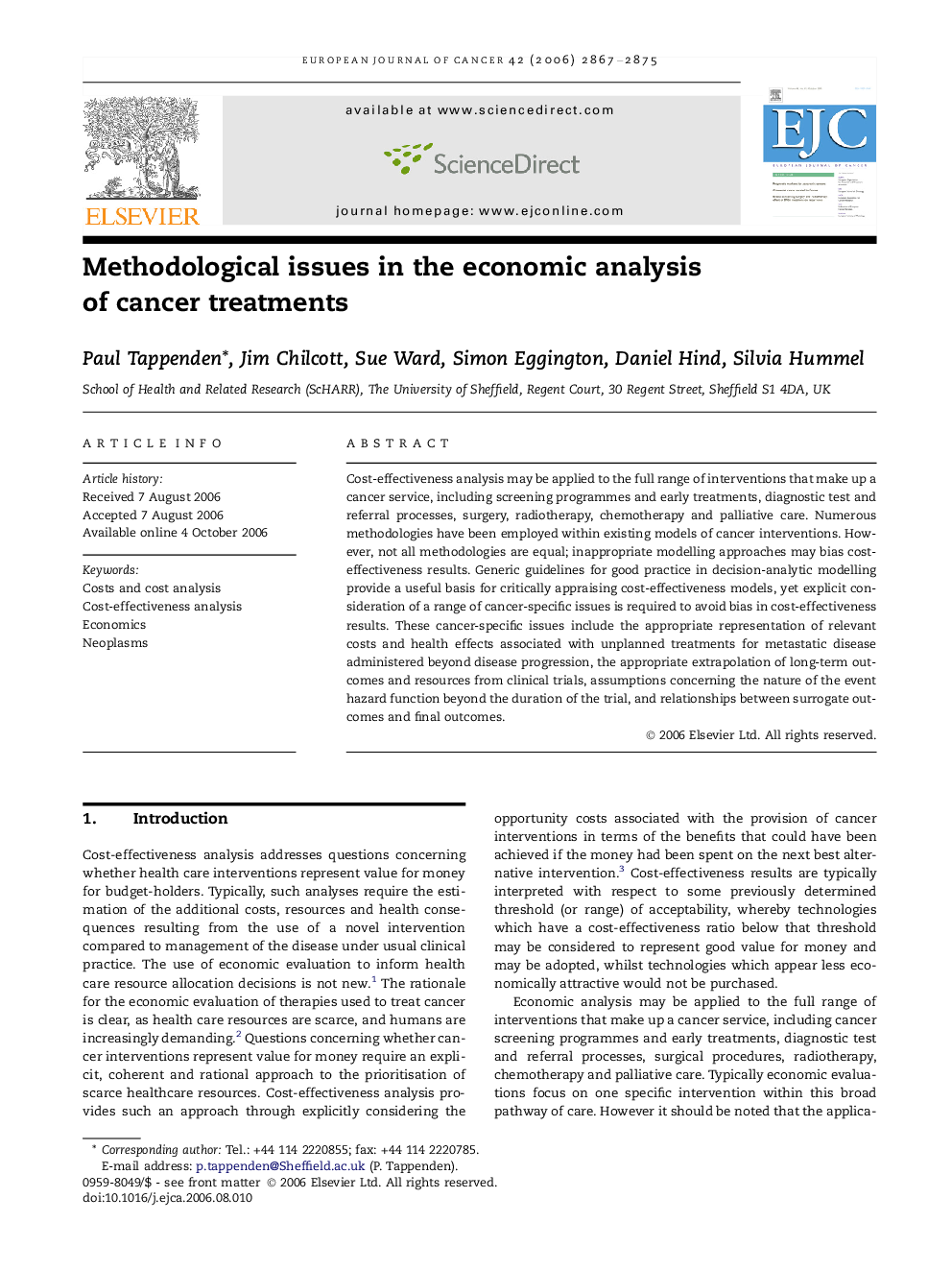| Article ID | Journal | Published Year | Pages | File Type |
|---|---|---|---|---|
| 2125879 | European Journal of Cancer | 2006 | 9 Pages |
Cost-effectiveness analysis may be applied to the full range of interventions that make up a cancer service, including screening programmes and early treatments, diagnostic test and referral processes, surgery, radiotherapy, chemotherapy and palliative care. Numerous methodologies have been employed within existing models of cancer interventions. However, not all methodologies are equal; inappropriate modelling approaches may bias cost-effectiveness results. Generic guidelines for good practice in decision-analytic modelling provide a useful basis for critically appraising cost-effectiveness models, yet explicit consideration of a range of cancer-specific issues is required to avoid bias in cost-effectiveness results. These cancer-specific issues include the appropriate representation of relevant costs and health effects associated with unplanned treatments for metastatic disease administered beyond disease progression, the appropriate extrapolation of long-term outcomes and resources from clinical trials, assumptions concerning the nature of the event hazard function beyond the duration of the trial, and relationships between surrogate outcomes and final outcomes.
